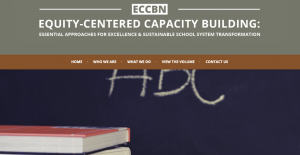Transformational Pedagogy: Cashing The Promissory Note Of Equity For All Students – Especially Those Who Are Marginalized
In a sense we’ve come to our nation’s capital to cash a check. When the architects of our republic wrote the magnificent words of the Constitution and the Declaration of Independence, they were signing a promissory note to which every American was to fall heir. This note was a promise that all men [and women], yes, black … as well as white … would be guaranteed the “unalienable rights” of “Life, Liberty and the pursuit of Happiness.”
(Dr. Martin Luther King Jr., March on Washington)
 What makes equity so hard to achieve are its many facets, so numerous and complex they are hard to define. This inability to define equity handily is especially confounding for urban districts that reach out to our organization, the National Urban Alliance for Effective Education (NUA), for help in translating their commitment to “equity” into practices to stem the tide of unnecessary underperformance plaguing their schools. These districts are predominantly in cities where “urban” is a euphemism for “low-performing” students of color and their teachers (Jackson, 2011, p.1).
What makes equity so hard to achieve are its many facets, so numerous and complex they are hard to define. This inability to define equity handily is especially confounding for urban districts that reach out to our organization, the National Urban Alliance for Effective Education (NUA), for help in translating their commitment to “equity” into practices to stem the tide of unnecessary underperformance plaguing their schools. These districts are predominantly in cities where “urban” is a euphemism for “low-performing” students of color and their teachers (Jackson, 2011, p.1).
Martin Luther King understood the difficulty in defining complex concepts such as equity, so he employed metaphors to help people decipher and grasp the concept. In this context, equity is the promissory note he spoke about in his I Have A Dream speech: equity for all people to be free to pursue a life of happiness. In both the Declaration of Independence and the Constitution, this right to the pursuit of happiness was based on belief in the potential of Americans (at that time specifically male, land-owning Americans of European descent) to develop strengths and abilities for self-actualization. These strengths and abilities were valued for their currency … for their worth in contributing to a developing society.
